-
 Bitcoin
Bitcoin $83,622.6306
-1.03% -
 Ethereum
Ethereum $1,589.6945
-1.99% -
 Tether USDt
Tether USDt $1.0000
0.01% -
 XRP
XRP $2.0889
-1.88% -
 BNB
BNB $580.0353
-0.85% -
 Solana
Solana $126.7178
-2.33% -
 USDC
USDC $1.0000
-0.01% -
 TRON
TRON $0.2506
-0.43% -
 Dogecoin
Dogecoin $0.1537
-3.31% -
 Cardano
Cardano $0.6091
-4.20% -
 UNUS SED LEO
UNUS SED LEO $9.3201
-0.87% -
 Chainlink
Chainlink $12.2503
-3.06% -
 Avalanche
Avalanche $19.0105
-5.53% -
 Stellar
Stellar $0.2359
-1.88% -
 Toncoin
Toncoin $2.8505
-1.13% -
 Shiba Inu
Shiba Inu $0.0...01170
-2.63% -
 Sui
Sui $2.0950
-4.30% -
 Hedera
Hedera $0.1569
-4.99% -
 Bitcoin Cash
Bitcoin Cash $319.8208
-1.32% -
 Litecoin
Litecoin $75.7238
-2.04% -
 Polkadot
Polkadot $3.5266
-3.99% -
 Dai
Dai $1.0001
0.01% -
 Bitget Token
Bitget Token $4.2562
-1.04% -
 Hyperliquid
Hyperliquid $15.1159
-4.03% -
 Ethena USDe
Ethena USDe $0.9992
0.01% -
 Pi
Pi $0.6455
-12.89% -
 Monero
Monero $215.1633
0.19% -
 Uniswap
Uniswap $5.1866
-3.08% -
 OKB
OKB $51.9360
-0.45% -
 Pepe
Pepe $0.0...06972
-4.89%
Why does DeFi mining need to rely on blockchain networks?
DeFi mining relies on blockchain for security, transparency, and decentralization, enabling trustless financial activities and rewarding participants.
Apr 07, 2025 at 06:21 am
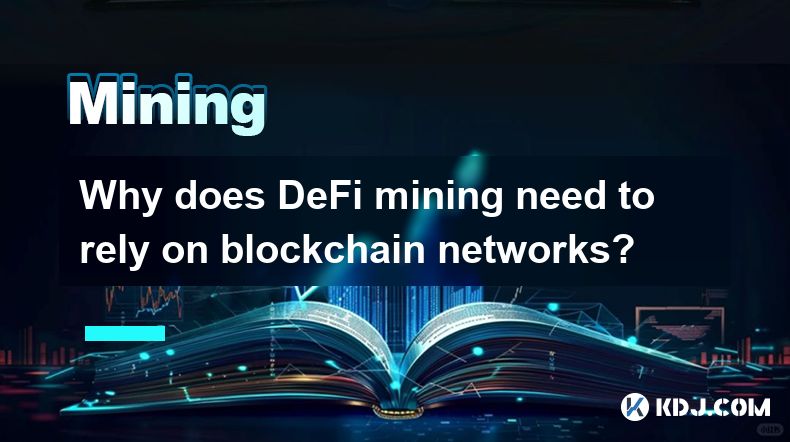
Decentralized Finance (DeFi) mining has become a pivotal aspect of the cryptocurrency ecosystem, allowing users to earn rewards by participating in various financial activities. However, a fundamental question arises: To understand this, we must delve into the core principles of DeFi and the indispensable role that blockchain technology plays in enabling these decentralized financial systems.
The Essence of DeFi and its Dependence on Blockchain
DeFi, or Decentralized Finance, refers to financial services and products built on blockchain technology. Unlike traditional finance, which relies on centralized institutions like banks, DeFi operates on decentralized networks. This decentralization is crucial for ensuring that no single entity has control over the financial system, thereby promoting transparency, security, and accessibility.
Blockchain networks serve as the backbone of DeFi. They provide the necessary infrastructure for executing smart contracts, which are self-executing contracts with the terms directly written into code. These smart contracts automate financial transactions and agreements, making them trustless and transparent. Without blockchain, the decentralized nature of DeFi would be impossible to achieve.
Security and Trust in DeFi Mining
One of the primary reasons DeFi mining relies on blockchain networks is the need for security and trust. Traditional financial systems are often plagued by fraud and manipulation, which can lead to significant losses for users. Blockchain networks, on the other hand, use cryptographic techniques to secure transactions and ensure that once a transaction is recorded, it cannot be altered.
In DeFi mining, participants stake their assets to support the network and earn rewards. The blockchain ensures that these transactions are secure and verifiable by all participants. This transparency and security are crucial for building trust among users, who can confidently participate in mining activities knowing that their assets are protected.
Decentralization and Accessibility
Another critical aspect of DeFi mining is its decentralized nature, which is made possible by blockchain technology. Traditional mining operations often require significant capital and infrastructure, making them inaccessible to many individuals. DeFi mining, however, can be conducted by anyone with an internet connection and some cryptocurrency to stake.
Blockchain networks enable this accessibility by allowing users to participate in mining pools and other decentralized applications (dApps). These platforms are built on blockchain technology, ensuring that they remain decentralized and open to all participants. This democratization of mining opportunities is a key driver of the growth and popularity of DeFi.
Immutable Records and Transparency
Blockchain networks provide immutable records of all transactions, which is essential for DeFi mining. Each transaction, including those related to mining activities, is recorded on the blockchain and cannot be altered. This immutability ensures that the rewards earned by miners are transparent and verifiable, fostering trust in the system.
In traditional finance, records can be manipulated or lost, leading to disputes and fraud. The blockchain's immutability eliminates these risks, ensuring that all mining activities are recorded accurately and permanently. This transparency is crucial for maintaining the integrity of DeFi mining and ensuring that all participants are fairly rewarded for their contributions.
Efficiency and Automation through Smart Contracts
Smart contracts play a vital role in DeFi mining, and they are made possible by blockchain technology. These contracts automate the distribution of rewards to miners based on predefined rules. For example, a smart contract can automatically distribute mining rewards to participants who have staked their assets in a liquidity pool.
This automation increases the efficiency of DeFi mining, as it eliminates the need for intermediaries and reduces the risk of human error. Without blockchain, the execution of these smart contracts would be impossible, as traditional systems lack the necessary infrastructure to support them. The use of smart contracts in DeFi mining ensures that rewards are distributed fairly and transparently, enhancing the overall efficiency of the system.
Interoperability and Scalability
Blockchain networks also enable interoperability and scalability, which are essential for the growth of DeFi mining. Different blockchain networks can be interconnected, allowing miners to participate in various DeFi ecosystems and earn rewards from multiple sources. This interoperability increases the potential for miners to maximize their earnings and diversify their investments.
Scalability is another critical factor, as the number of participants in DeFi mining continues to grow. Blockchain networks can be designed to handle increasing transaction volumes, ensuring that the system remains efficient and responsive. This scalability is crucial for supporting the growing demand for DeFi mining and ensuring that the system can accommodate new participants without compromising performance.
Economic Incentives and Network Effects
DeFi mining relies on blockchain networks to create economic incentives that drive participation and growth. Miners are rewarded with tokens or other cryptocurrencies for their contributions to the network, which encourages more individuals to participate. These economic incentives are built into the blockchain's protocol, ensuring that they are transparent and fair.
The network effects created by blockchain technology also play a crucial role in the success of DeFi mining. As more participants join the network, the value and utility of the DeFi ecosystem increase, attracting even more users. This positive feedback loop is facilitated by the decentralized nature of blockchain networks, which allow for seamless integration and growth.
Regulatory Compliance and Legal Framework
Blockchain networks provide a framework for regulatory compliance and legal clarity in DeFi mining. While DeFi operates in a largely unregulated space, blockchain technology can help ensure that mining activities adhere to relevant laws and regulations. For example, blockchain's transparency can facilitate audits and compliance checks, ensuring that miners operate within legal boundaries.
This regulatory compliance is crucial for the long-term sustainability of DeFi mining. By leveraging blockchain technology, DeFi platforms can demonstrate their commitment to transparency and accountability, which can help build trust with regulators and the broader financial community. This, in turn, can pave the way for greater acceptance and adoption of DeFi mining.
Challenges and Future Developments
Despite the many benefits of relying on blockchain networks for DeFi mining, there are also challenges to consider. Scalability issues, high transaction fees, and potential vulnerabilities in smart contracts are among the hurdles that need to be addressed. However, ongoing research and development in blockchain technology are aimed at overcoming these challenges.
Future developments in blockchain technology, such as layer-2 solutions and improved consensus mechanisms, promise to enhance the efficiency and security of DeFi mining. These advancements will further solidify the role of blockchain networks as the foundation for DeFi and enable the continued growth and innovation of decentralized financial systems.
Common Questions Related to DeFi Mining and Blockchain Networks
Q: What is DeFi mining and how does it work?
A: DeFi mining involves participating in decentralized financial activities, such as providing liquidity or staking assets, to earn rewards. These activities are facilitated by smart contracts on blockchain networks, which automatically distribute rewards to participants based on their contributions.
Q: Why is blockchain technology essential for DeFi mining?
A: Blockchain technology is essential for DeFi mining because it provides the necessary infrastructure for executing smart contracts, ensuring security, transparency, and decentralization. Without blockchain, the trustless and automated nature of DeFi mining would be impossible to achieve.
Q: How does blockchain ensure the security of DeFi mining?
A: Blockchain ensures the security of DeFi mining through cryptographic techniques that secure transactions and make them immutable. This ensures that once a transaction is recorded, it cannot be altered, providing a high level of security and trust for participants.
Q: Can DeFi mining be conducted without blockchain technology?
A: No, DeFi mining cannot be conducted without blockchain technology. The decentralized and trustless nature of DeFi mining relies on the infrastructure provided by blockchain networks, including smart contracts and immutable transaction records.
Q: What are the benefits of using blockchain for DeFi mining?
A: The benefits of using blockchain for DeFi mining include enhanced security, transparency, decentralization, accessibility, and efficiency. Blockchain networks enable the automation of reward distribution through smart contracts and provide a secure and verifiable record of all transactions.
Q: What challenges does DeFi mining face on blockchain networks?
A: DeFi mining faces challenges such as scalability issues, high transaction fees, and potential vulnerabilities in smart contracts. However, ongoing developments in blockchain technology aim to address these challenges and improve the overall efficiency and security of DeFi mining.
Q: How can blockchain technology improve the future of DeFi mining?
A: Blockchain technology can improve the future of DeFi mining through advancements such as layer-2 solutions, improved consensus mechanisms, and enhanced scalability. These developments will enable more efficient and secure DeFi mining, fostering continued growth and innovation in the ecosystem.
Disclaimer:info@kdj.com
The information provided is not trading advice. kdj.com does not assume any responsibility for any investments made based on the information provided in this article. Cryptocurrencies are highly volatile and it is highly recommended that you invest with caution after thorough research!
If you believe that the content used on this website infringes your copyright, please contact us immediately (info@kdj.com) and we will delete it promptly.
- Public Companies Added Nearly 100,000 Bitcoin To Their Balance Sheets During Q1 2025
- 2025-04-16 07:15:16
- Amidst the Stormy Seas of the Crypto World, a New Titan Emerges—BlockDAG
- 2025-04-16 07:15:16
- Bitcoin (BTC) reclaims $85,000, setting the stage for altcoins to rally
- 2025-04-16 07:15:14
- The Pi Network token price has increased by more than 14% over the past week.
- 2025-04-16 07:15:14
- A wave of capital is flowing out of Ethereum [ETH] and into Tron [TRX]
- 2025-04-16 07:05:14
- Figment to power 3iQ's newly approved Solana exchange-traded fund (ETF)
- 2025-04-16 07:05:14
Related knowledge
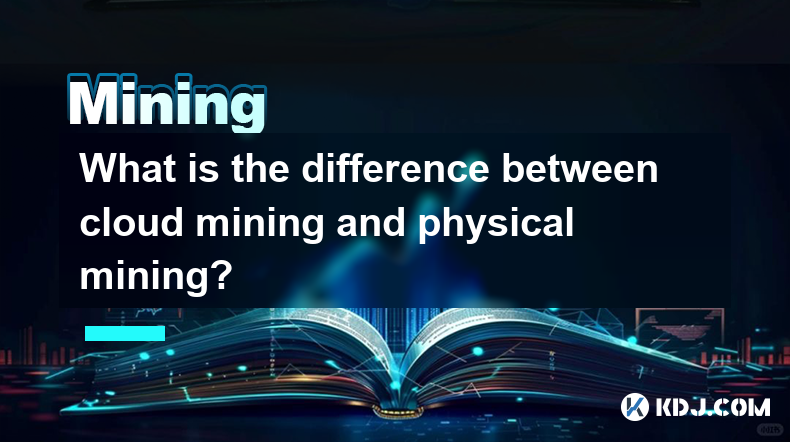
What is the difference between cloud mining and physical mining?
Apr 16,2025 at 01:49am
What is the difference between cloud mining and physical mining? In the world of cryptocurrencies, mining is the process by which new coins are generated and transactions are verified and added to the blockchain. There are two primary methods of mining: cloud mining and physical mining. Understanding the differences between these two approaches can help...
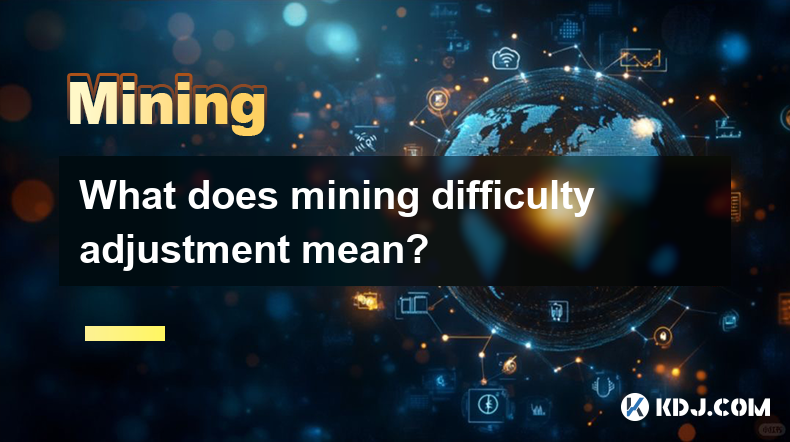
What does mining difficulty adjustment mean?
Apr 16,2025 at 12:42am
What does mining difficulty adjustment mean? Mining difficulty adjustment is a crucial mechanism in blockchain networks, particularly in Proof of Work (PoW) systems like Bitcoin. It ensures that the rate at which new blocks are added to the blockchain remains consistent, despite fluctuations in the total computational power (hash rate) of the network. T...
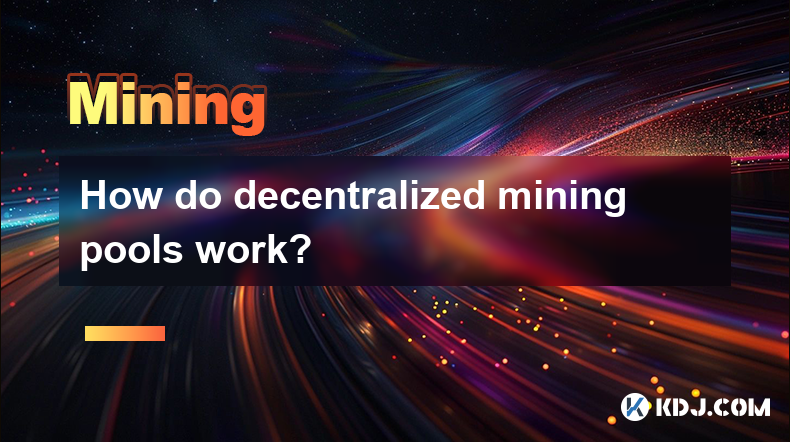
How do decentralized mining pools work?
Apr 16,2025 at 05:42am
Decentralized mining pools represent a significant evolution in the world of cryptocurrency mining, offering a more democratic and transparent approach compared to traditional centralized pools. In this article, we will explore the mechanics of decentralized mining pools, their benefits, and how they operate within the cryptocurrency ecosystem. What are...
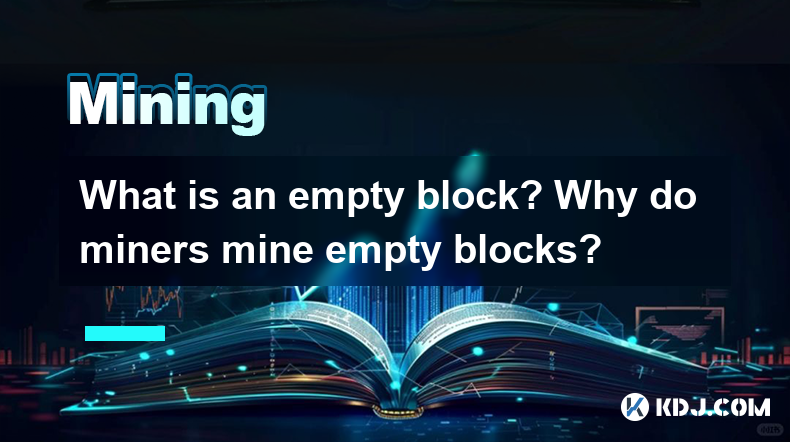
What is an empty block? Why do miners mine empty blocks?
Apr 16,2025 at 01:28am
What is an Empty Block?An empty block in the context of blockchain technology, particularly in cryptocurrencies like Bitcoin, refers to a block that contains no transactions other than the coinbase transaction. The coinbase transaction is a special transaction in which new bitcoins are generated and awarded to the miner who successfully mines the block....
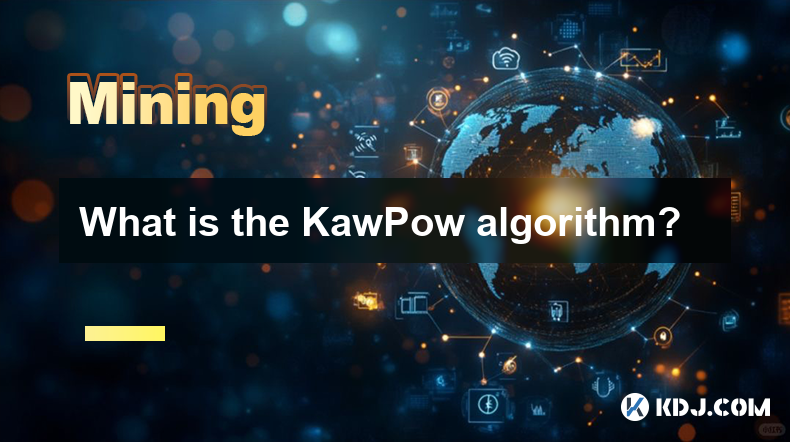
What is the KawPow algorithm?
Apr 16,2025 at 06:43am
The KawPow algorithm is a proof-of-work (PoW) consensus mechanism specifically designed for the Ravencoin blockchain. It evolved from the earlier X16R and X16RV2 algorithms, aiming to enhance the security and efficiency of the mining process. KawPow was introduced to address the issues associated with ASIC (Application-Specific Integrated Circuit) miner...
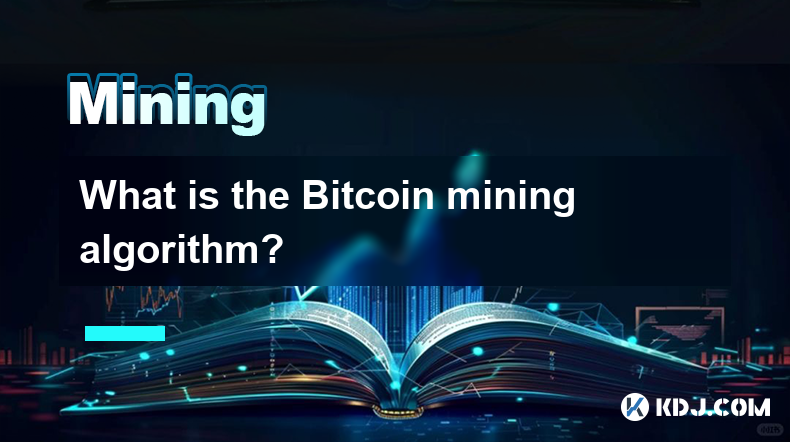
What is the Bitcoin mining algorithm?
Apr 15,2025 at 08:00pm
What is the Bitcoin Mining Algorithm? Bitcoin mining is a crucial process that maintains the integrity and security of the Bitcoin network. At the heart of this process lies the Bitcoin mining algorithm, which is responsible for verifying transactions and adding them to the blockchain. Understanding this algorithm is essential for anyone interested in t...

What is the difference between cloud mining and physical mining?
Apr 16,2025 at 01:49am
What is the difference between cloud mining and physical mining? In the world of cryptocurrencies, mining is the process by which new coins are generated and transactions are verified and added to the blockchain. There are two primary methods of mining: cloud mining and physical mining. Understanding the differences between these two approaches can help...

What does mining difficulty adjustment mean?
Apr 16,2025 at 12:42am
What does mining difficulty adjustment mean? Mining difficulty adjustment is a crucial mechanism in blockchain networks, particularly in Proof of Work (PoW) systems like Bitcoin. It ensures that the rate at which new blocks are added to the blockchain remains consistent, despite fluctuations in the total computational power (hash rate) of the network. T...

How do decentralized mining pools work?
Apr 16,2025 at 05:42am
Decentralized mining pools represent a significant evolution in the world of cryptocurrency mining, offering a more democratic and transparent approach compared to traditional centralized pools. In this article, we will explore the mechanics of decentralized mining pools, their benefits, and how they operate within the cryptocurrency ecosystem. What are...

What is an empty block? Why do miners mine empty blocks?
Apr 16,2025 at 01:28am
What is an Empty Block?An empty block in the context of blockchain technology, particularly in cryptocurrencies like Bitcoin, refers to a block that contains no transactions other than the coinbase transaction. The coinbase transaction is a special transaction in which new bitcoins are generated and awarded to the miner who successfully mines the block....

What is the KawPow algorithm?
Apr 16,2025 at 06:43am
The KawPow algorithm is a proof-of-work (PoW) consensus mechanism specifically designed for the Ravencoin blockchain. It evolved from the earlier X16R and X16RV2 algorithms, aiming to enhance the security and efficiency of the mining process. KawPow was introduced to address the issues associated with ASIC (Application-Specific Integrated Circuit) miner...

What is the Bitcoin mining algorithm?
Apr 15,2025 at 08:00pm
What is the Bitcoin Mining Algorithm? Bitcoin mining is a crucial process that maintains the integrity and security of the Bitcoin network. At the heart of this process lies the Bitcoin mining algorithm, which is responsible for verifying transactions and adding them to the blockchain. Understanding this algorithm is essential for anyone interested in t...
See all articles























































































